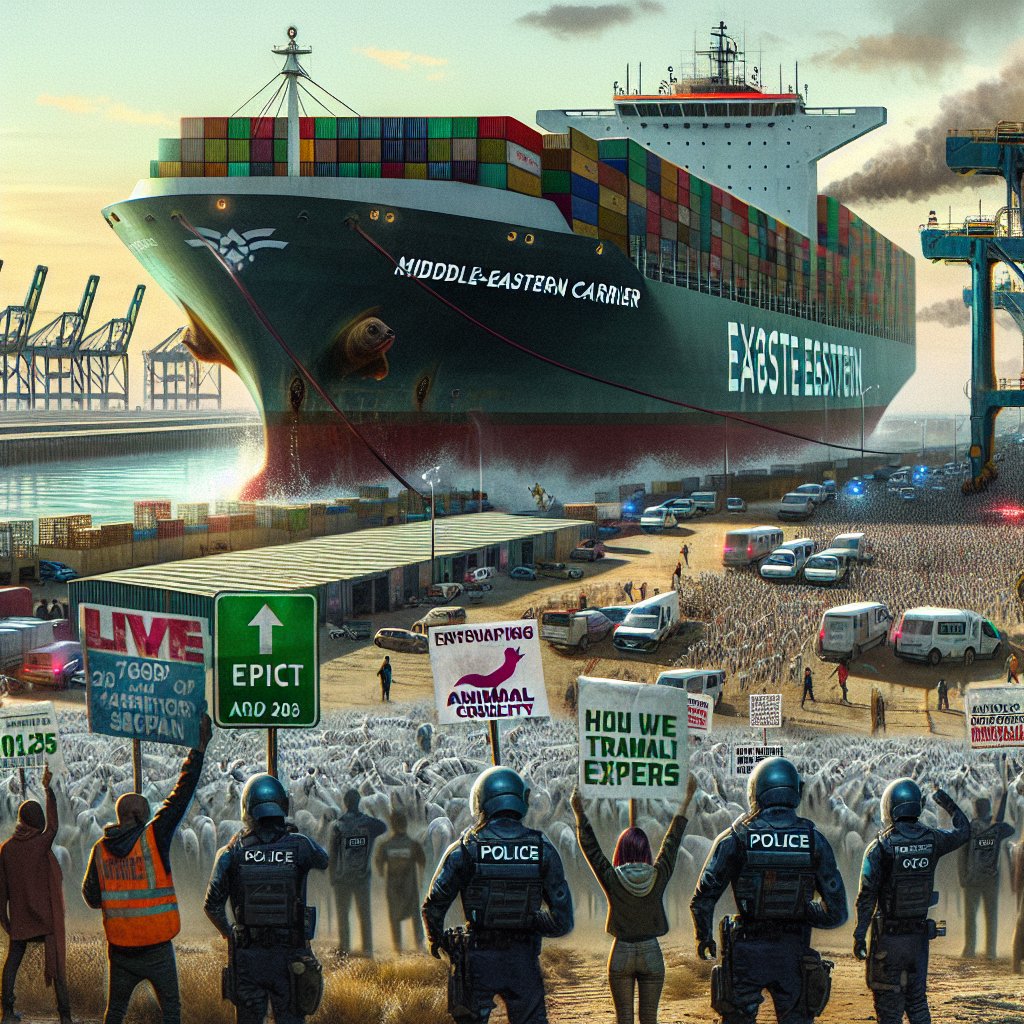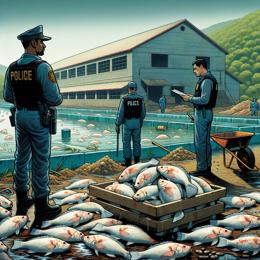Image created by AI
Controversy Swells as Al Messilah Set to Load Livestock in East London Amid Cruelty Concerns
East London, South Africa, braces for a growing controversy surrounding the arrival of the Middle-Eastern livestock carrier, Al Messilah. The vessel is infamously tagged as one of the "ships of shame" due to previous incidences of animal cruelty during her voyages. This voyage, scheduled for Tuesday, 2 April 2024, involves the export of around 60,000 sheep, 1,500 cattle, and 200 goats to Kuwait and Saudi Arabia, sparking significant ethical and legal concerns.
The National Council of Societies for the Prevention of Cruelty to Animals (NSPCA) has been at the forefront of the battle against cruel live animal exports. Last August, a gruesome incident at a local feedlot led to the arrest of the manager on charges of animal cruelty; the NSPCA discovered 126 rams horribly mutilated with an angle grinder. This has escalated tensions around the practice, with stringent warnings issued by the NSPCA demanding adequate conditions for the animals awaiting shipment.
Hostility towards NSPCA inspectors from Bruce Page, the owner of the contentious feedlot, culminated in a physical altercation, necessitating police intervention and resulting in several ongoing prosecution cases against Al Mawashi, Al Messilah's owning company, and Page himself.
NSPCA has unwaveringly opposed live sea transport for animals due to the extreme discomfort and distress such journeys entail. They assert that these exporters prioritize profits over the well-being of the animals. Despite considerable costs incurred during shipment monitoring, the NSPCA remains determined to leverage all legal avenues to ensure animal welfare is not compromised.
Previous attempts by the NSPCA to thwart these shipments led to the successful halt of exporting up to 85,000 sheep in 2022. Tony Gerrans from HSI/Africa has outlined the brutal conditions and violations of the country's Animal Protection Act, drawing parallels to the suffering of animals akin to a dog trapped in a hot car.
Despite these ongoing battles, the industry has continued its practice. The sheer volume of animal shipments from the Eastern Cape disclosed through information requests proved substantial. Al Mawashi's live export numbers are staggering, with tens of thousands of animals shipped annually since 2019.
European Commission's report lays bare the bleak reality of these livestock carriers, with a shockingly high percentage flagged for maritime safety risks and non-compliance with EU animal welfare legislation, echoing the NSPCA's concerns over unsuitable conditions and inadequate ventilation leading to injury and sometimes death during transit.
As the day of Al Messilah's arrival draws near, tensions are high, and the focus on animal welfare is sharper than ever.










